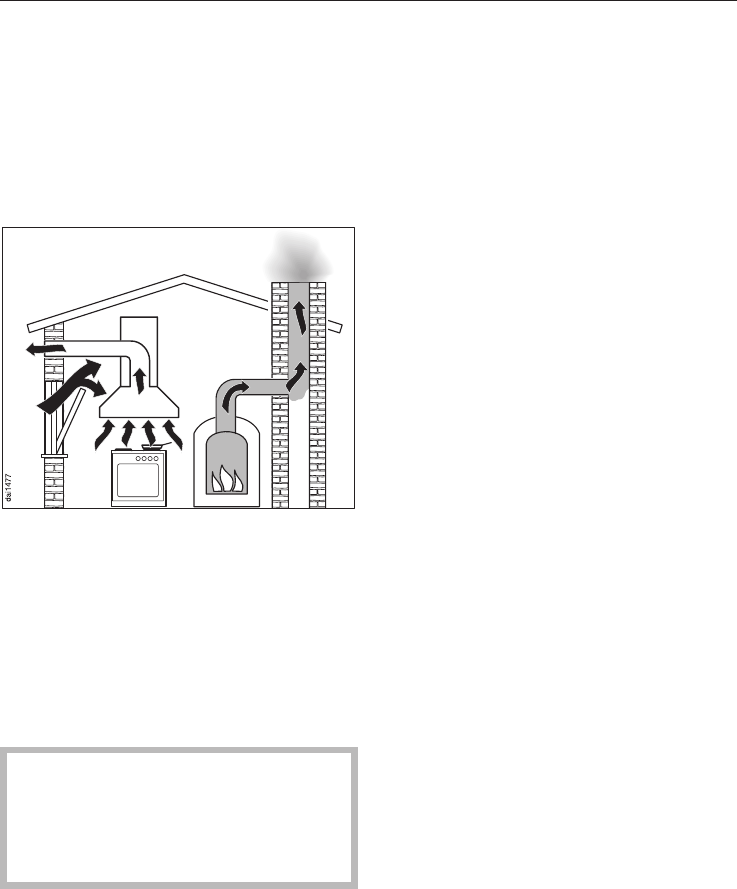
In order to ensure safe operation, and
to prevent gases given off by the
heating appliances from being drawn
back into the room when the cooker
hood and the heater are in operation
simultaneously, an underpressure in the
room of 0.04 mbar (4 pa) is the
maximum permissible.
Ventilation can be maintained by air
inlets which cannot be blocked, in
windows, doors and outside wall vents,
or by other technical measures, such
as ensuring that the cooker hood can
only be switched on when the heating
appliance is switched off or vice versa.
A ventilation brick alone is not generally
sufficient to ensure safe ventilation.
,
The overall ventilation condition
of the dwelling must be taken into
account. If in any doubt, the advice
of a competent builder or, for gas, a
"Corgi" installer, must be sought.
If the hood is being operated in
recirculation mode, the above
restrictions do not apply.
Correct use
~
Never use an open flame beneath
the cooker hood. To avoid the danger
of fire, do not flambé or grill over an
open flame.
When switched on, the cooker hood
could draw flames into the filter. Fat
particles drawn into the cooker hood
present a fire hazard.
~
When using the cooker hood over a
gas hob, ensure that any burners in use
are always covered by a pan. Switch
the cooking zone off when a pan is
removed, even for a short time.
Regulate the flame so that it does not
burn up the sides of the pan.
Do not allow the pans to overheat
excessively (e.g. when using a wok).
The cooker hood can become
damaged when exposed to excessive
heat.
~
Always switch the cooker hood on
when a cooking zone is in use,
otherwise condensation may collect in
the hood, which could cause corrosion.
~
When cooking with oil or fat, chip
pans and deep fat fryers etc, do not
leave the pans unattended. Never leave
an open grill unattended when grilling.
Overheated oil and fat can ignite and
could set the cooker hood on fire.
Warning and Safety instructions
7


















